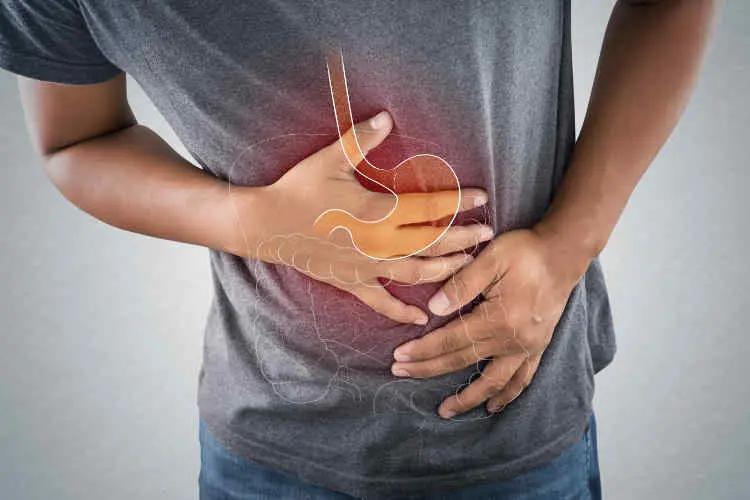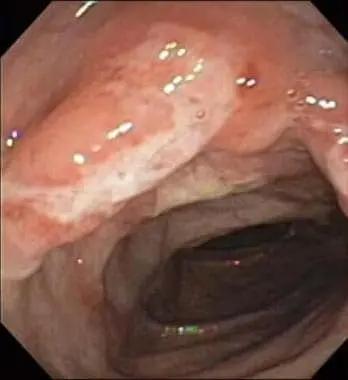
Crohn’s disease is a chronic, inflammatory bowel condition that can significantly impact an individual’s quality of life. This disorder affects the digestive tract, often causing distressing symptoms such as abdominal pain, diarrhoea, and weight loss. While the exact causes of Crohn’s disease remain unknown, researchers have identified several contributing factors, including genetic predisposition, immune system dysfunction, and environmental triggers.
As a lifelong condition, Crohn’s disease presents unique challenges for those living with it. The unpredictable nature of flare-ups, the potential for serious complications, and the need for ongoing management can all contribute to the intensity of this disease. In this article, we will delve into Crohn’s disease’s details, its symptoms, causes, diagnosis, treatment options, and the overall impact on an individual’s physical, emotional, and social well-being.
Defining Crohn’s Disease
Crohn’s disease is a type of inflammatory bowel disease (IBD) that primarily affects the digestive tract. Unlike ulcerative colitis, another common form of IBD, Crohn’s disease can occur in any part of the gastrointestinal system, from the mouth to the anus. The inflammation associated with Crohn’s disease can break through the full thickness of the intestinal wall, leading to a wide range of symptoms and complications.
Understanding the types of Crohn’s Disease
Crohn’s disease can manifest in various forms, the most common types of Crohn’s disease include:
- Ileocolitis: Inflammation affecting the lower part of the small intestine (ileum) and the beginning of the large intestine (colon)
- Ileitis: Inflammation limited to the ileum, the final section of the small intestine
- Gastroduodenal Crohn’s Disease: Inflammation affecting the stomach and the first part of the small intestine (duodenum)
- Jejunoileitis: Patchy areas of inflammation in the upper half of the small intestine (jejunum)
- Crohn’s colitis: Inflammation confined to the large intestine (colon)
- Perianal disease: Inflammation and complications around the anus and rectum
Symptoms
Crohn’s disease can present a wide range of symptoms, varying in severity and duration. The most common symptoms include:
- Abdominal pain and cramps: Individuals with Crohn’s disease often experience persistent or recurrent abdominal pain and cramping, which can be particularly severe during flare-ups
- Diarrhoea: Chronic, watery diarrhoea is a hallmark symptom of Crohn’s disease, and it can lead to dehydration and electrolyte imbalances
- Rectal bleeding: Inflammation and ulceration in the digestive tract can result in the presence of blood in the stool
- Weight loss and malnutrition: The combination of reduced appetite, malabsorption of nutrients, and increased caloric demands can contribute to unintentional weight loss and malnutrition
- Fatigue and lethargy: Chronic inflammation and the body’s efforts to combat the disease can lead to persistent fatigue and a general sense of low energy
- Mouth ulcers: Crohn’s disease can also manifest in the form of painful mouth sores or ulcers
In addition to these gastrointestinal symptoms, Crohn’s disease can also have other symptoms affecting other parts of the body. These may include joint pain, skin rashes, eye inflammation, and even liver or kidney complications.
Causes and risk factors
The exact cause of Crohn’s disease remains unknown, but researchers have identified several contributing factors that may play a role in the development of this chronic condition.
Autoimmune dysfunction
One of the leading theories is that Crohn’s disease is an autoimmune disorder, where the body’s immune system mistakenly attacks its healthy cells and tissues within the digestive tract. This inappropriate immune response leads to chronic inflammation and the characteristic symptoms of Crohn’s disease.
Genetics
Genetics also appear to play a significant role in the development of Crohn’s disease. Individuals with a close family member, such as a parent, sibling, or child, who has Crohn’s disease are at a higher risk of developing the condition themselves. Specific genetic mutations have been linked to an increased susceptibility to Crohn’s disease.
Environmental factors
While genetics and autoimmune disorders are important factors, environmental triggers may also contribute to the onset and progression of Crohn’s disease. Factors such as diet, stress, and exposure to certain medications (e.g., antibiotics, non-steroidal anti-inflammatory drugs) have been associated with an increased risk of developing or exacerbating Crohn’s disease symptoms.
Demographics
Crohn’s disease can affect individuals of any age, but it is most commonly diagnosed in people between the ages of 15 and 35. The condition is also more prevalent in certain racial and ethnic groups, with higher incidence rates observed in Caucasians and individuals of Ashkenazi Jewish descent.
Understanding the complex connection of these factors is important for healthcare providers to develop personalised treatment strategies and effectively manage the challenges associated with Crohn’s disease.
Diagnosis
Diagnosing Crohn’s disease can be complex as the symptoms can often resemble those of other gastrointestinal disorders. Healthcare providers typically employ a combination of various diagnostic tools to confirm the presence of Crohn’s disease and rule out other potential conditions.
Medical history and physical examination
The process often begins with a thorough review of the patient’s medical history, including any family history of inflammatory bowel diseases. The healthcare provider will also conduct a physical examination, looking for signs of abdominal tenderness, swelling, or other physical signs of Crohn’s disease.
Laboratory tests
Blood and stool tests can provide valuable insights into the underlying inflammation and potential infections associated with Crohn’s disease. These may include tests for markers of inflammation, such as C-reactive protein (CRP) and faecal calprotectin, as well as tests to rule out other potential causes of the symptoms.
Imaging techniques
Diagnostic imaging plays a crucial role in the evaluation of Crohn’s disease. Techniques such as computed tomography (CT) scans, magnetic resonance imaging (MRI), and upper gastrointestinal series with small bowel follow-through can help visualise the extent and location of the inflammation within the digestive tract.
Endoscopic procedures
Endoscopic examinations, such as colonoscopy and upper endoscopy, allow healthcare providers to directly observe the condition of the digestive tract and obtain tissue samples (biopsies) for further analysis. These procedures are essential for confirming the diagnosis of Crohn’s disease and ruling out other potential conditions.
Treatment
There is currently no cure for Crohn’s disease, but a range of treatment options are available to help manage the symptoms, reduce inflammation, and prevent or delay the progression of the condition. The treatment approach is typically tailored to the individual’s specific needs, taking into account the type and severity of the disease, as well as any underlying complications or risk factors.
Medication management
Medication plays a central role in the management of Crohn’s disease. These may include:
- Anti-inflammatory drugs: Corticosteroids and aminosalicylates (5-ASAs) can help reduce inflammation and alleviate symptoms during flare-ups
- Immunomodulators: Medications that suppress the overactive immune response, such as azathioprine and methotrexate, can help maintain remission
- Biologics: Newer biologic therapies, including TNF-alpha inhibitors and integrin antagonists, target specific components of the immune system to control inflammation
- Antibiotics: Antibiotics may be used to treat infections or complications associated with Crohn’s disease, such as abscesses or fistulas
- Symptom-relieving medications: Antidiarrheal, anti-nausea, and pain-relieving medications can help manage the various symptoms of Crohn’s disease
Dietary changes
Dietary modifications can play a significant role in managing Crohn’s disease symptoms and supporting overall health. Healthcare providers may recommend:
- Elimination of trigger foods that exacerbate symptoms
- Increased intake of easily digestible, nutrient-dense foods
- Supplementation with vitamins, minerals, and other nutrients to address deficiencies
In severe cases, enteral or parenteral nutrition may be necessary to provide the body with the essential nutrients it needs.
Surgical interventions
While medication and dietary changes are the primary treatment approaches, some individuals with Crohn’s disease may require surgical intervention to address complications or improve their quality of life. Potential surgical procedures include:
- Bowel resection to remove damaged or diseased portions of the intestine
- Strictureplasty to widen narrowed sections of the intestine
- Creation of a temporary or permanent opening to bypass a diseased or obstructed portion of the intestine
Alternative therapies
In addition to conventional medical treatments, some individuals with Crohn’s disease may explore complementary or alternative therapies, such as:
- Herbal remedies and supplements
- Mind-body practices like meditation, yoga, and stress management techniques
- Acupuncture and other forms of traditional Chinese medicine
While the evidence for the efficacy of these approaches is limited, some patients may find them helpful in managing their symptoms and improving their overall well-being.
Complications of Crohn
Crohn’s disease can lead to a range of complications that can significantly impact an individual’s quality of life and overall health. Understanding these potential complications is crucial for early detection, timely intervention, and effective management.
Intestinal complications
Crohn’s disease can give rise to various intestinal complications, including:
- Bowel obstruction: Inflammation and scarring can narrow or block the intestinal passage, leading to partial or complete bowel obstructions
- Fistulas and abscesses: The inflammation can penetrate the intestinal wall, creating abnormal connections (fistulas) between different parts of the digestive tract or between the intestine and the skin
- Perianal disease: Crohn’s disease can also affect the area around the anus, causing painful fissures, abscesses, and fistulas
- Malnutrition: The combination of reduced appetite, malabsorption of nutrients, and increased caloric demands can lead to weight loss and malnutrition
Other complications
Crohn’s disease can also have manifestations outside of the digestive system, including:
- Joint and skin complications: Arthritis, skin rashes, and other inflammatory conditions may develop in individuals with Crohn’s disease
- Eye disorders: Conditions like uveitis (inflammation of the eye) and episcleritis (inflammation of the white of the eye) can occur
- Liver and bile duct complications: Crohn’s disease can increase the risk of primary sclerosing cholangitis, a condition that affects the bile ducts
- Increased risk of blood clots: Individuals with Crohn’s disease have a higher risk of developing blood clots in the veins or arteries
- Colorectal cancer: Prolonged inflammation associated with Crohn’s disease can increase the risk of developing colorectal cancer, particularly in those with extensive involvement of the colon
Quality of life
Despite the gravity of Crohn’s disease, many individuals can manage their condition and live active, fulfilling lives. With the right treatment approach and lifestyle modifications, the prognosis for individuals with Crohn’s disease can be quite favourable.
Flare-ups
Crohn’s disease is characterised by periods of remission, where symptoms are minimal or absent, followed by periods of flare-ups, where symptoms become more severe. The frequency and duration of these cycles can vary greatly among individuals, and they are influenced by factors such as the effectiveness of treatment, adherence to the prescribed regimen, and the presence of any complications.
Life expectancy and mortality
Crohn’s disease is not a life-threatening condition, and individuals with Crohn’s disease can generally expect to have a normal life expectancy. However, the disease can increase the risk of certain complications, such as colorectal cancer, which can be managed through regular screening and appropriate interventions.
Quality of life considerations
Living with Crohn’s disease can have a significant impact on an individual’s quality of life, both physically and emotionally. The unpredictable nature of the disease, the burden of managing symptoms and complications, and the potential for social and emotional challenges can all contribute to a decreased quality of life.
To address these concerns, healthcare providers often recommend a multifaceted approach that includes not only medical treatment but also support for the patient’s mental and emotional well-being. This may involve counselling, support groups, and the incorporation of stress-reducing techniques, such as mindfulness and relaxation practices.
Lifestyle modifications
Individuals living with Crohn’s disease can take an active role in managing their condition and improving their overall well-being. By incorporating lifestyle modifications and coping strategies, they can better navigate the challenges posed by this chronic illness.
Dietary considerations
Dietary changes can play a crucial role in managing Crohn’s disease symptoms. Healthcare providers may recommend:
- Identifying and avoiding trigger foods that exacerbate symptoms
- Adopting a low-fibre diet during flare-ups to reduce intestinal irritation
- Increasing the consumption of nutrient-dense, easily digestible foods
- Staying hydrated and maintaining a balanced intake of fluids
Stress management
Stress can be a significant trigger for Crohn’s disease flare-ups. Incorporating stress-reducing techniques, such as meditation, yoga, and regular exercise, can help individuals better manage their condition and improve their overall quality of life.
Medication
Consistent adherence to the prescribed medication regimen is crucial for managing Crohn’s disease. Patients should work closely with their healthcare providers to ensure they understand the importance of taking their medications as directed and address any concerns or side effects that may arise.
Conclusion
By embracing an approach that combines medical treatment, lifestyle modifications, and emotional support, individuals with Crohn’s disease can better navigate the challenges of this chronic condition and strive for an improved quality of life.
Building a strong support network can be immensely beneficial for individuals living with Crohn’s disease. This may include connecting with support groups, engaging with online communities, and involving family and friends in the management of the condition.
Sources
- Crohn’s Disease: What It Is, Symptoms, Causes & Treatment
- Inflammatory bowel disease (IBD) – Symptoms and causes – Mayo Clinic
- Crohn’s Disease – MedlinePlus
Medical Disclaimer
NowPatient has taken all reasonable steps to ensure that all material is factually accurate, complete, and current. However, the knowledge and experience of a qualified healthcare professional should always be sought after instead of using the information on this page. Before taking any drug, you should always speak to your doctor or another qualified healthcare provider.
The information provided here about medications is subject to change and is not meant to include all uses, precautions, warnings, directions, drug interactions, allergic reactions, or negative effects. The absence of warnings or other information for a particular medication does not imply that the medication or medication combination is appropriate for all patients or for all possible purposes.









